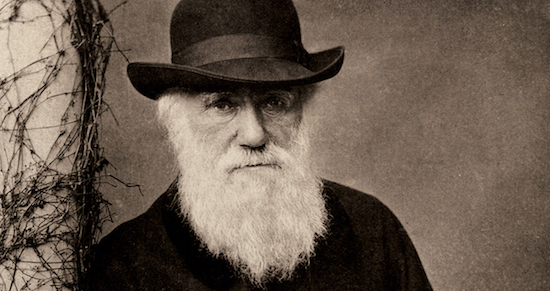
8. Disguising Darwin’s Doubts (1887)
Charles Darwin’s Autobiography includes not just his scientific opinions but also a full, personal account of his changing religious views, from minister-in-training to agnostic.
In his handwritten manuscript, he called the Old Testament “manifestly false” and said it is to be trusted no more than “the beliefs of any barbarian.” The world is governed by “fixed laws,” not divine will, and all morality can be derived without reference to God. Disbelief crept over him slowly but was at last complete, he said, and he “never since doubted for a single second that my conclusion was correct.”
Reading the manuscript after Charles’s death, his wife Emma –a deeply religious Christian – was worried about what would happen to his reputation if his views were known. This passage especially troubled her:
I can indeed hardly see how anyone ought to wish Christianity to be true, for if so the plain language of the text seems to show that the men who do not believe, and this would include my Father, Brother and almost all of my friends, will be everlastingly punished. And this is a damnable doctrine.
Emma bracketed that passage and wrote in the margin:
I should dislike the passage in brackets to be published. It seems to me raw. Nothing can be said too severe upon the doctrine of everlasting punishment for disbelief–but very few now wd. call that ‘Christianity,’ (tho’ the words are there).
In all, Emma marked up nearly 20 pages for deletion, and in some cases, her deletions reversed his meaning.














